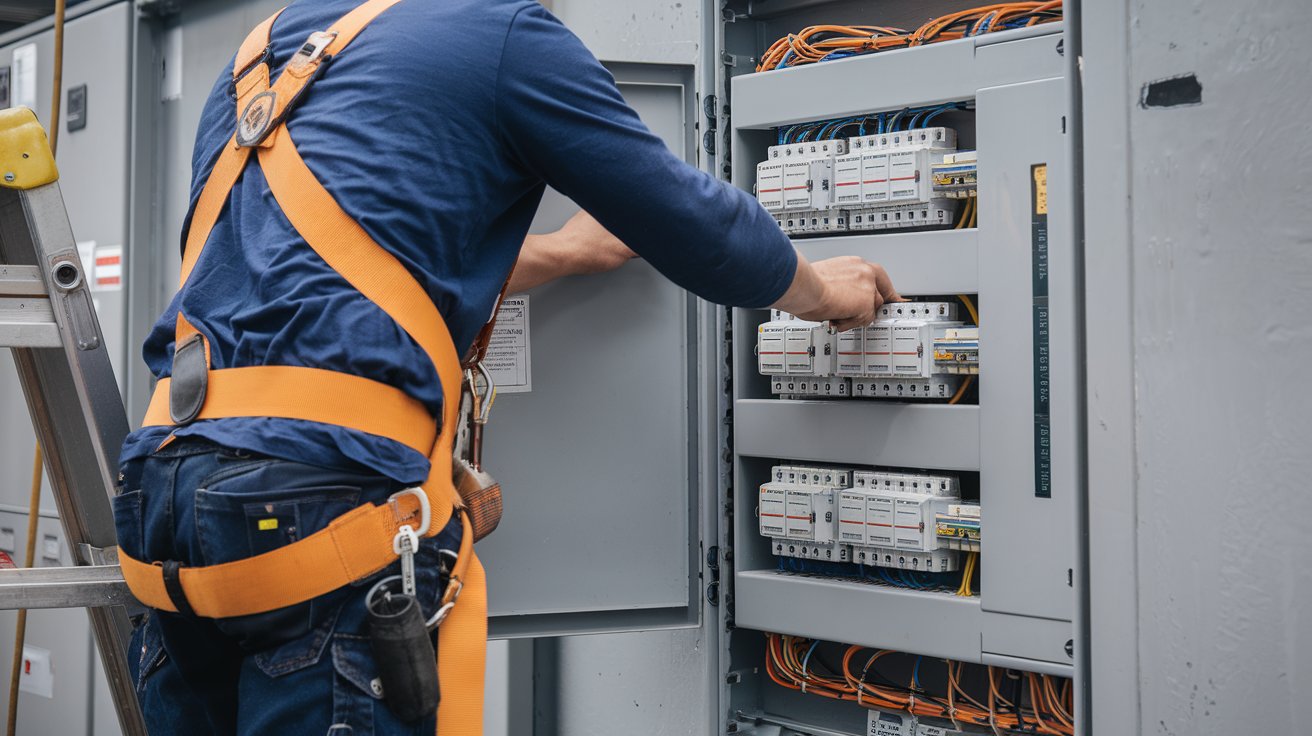This is a Freebox. You can put any valid HTML in here. Or disable this feature if you don't need it.

Upgrading Circuit Breakers to Meet New Regulations
2025-01-23
Upgrading circuit breakers is not just a regulatory requirement but a vital part of ensuring electrical safety. Keeping up with changes in the wiring regulations will help prevent electrical hazards and ensure that installations are safe for years to come
Upgrading Circuit Breakers to Meet New Regulations As electrical safety regulations evolve, upgrading circuit breakers becomes essential for both compliance and safety. The 18th Edition of the Wiring Regulations (BS 7671) in the UK outlines necessary changes that electricians must adhere to in their installations. Why Upgrade Circuit Breakers? New regulations often require the inclusion of Residual Current Devices (RCDs) for additional protection, especially in domestic circuits. Circuit breakers must also be correctly rated to prevent overcurrent situations that could cause overheating or fires. Ensuring that your circuit breakers meet the latest standards helps maintain safety and reduces the risk of electrical faults. What Needs to be Updated? RCDs and MCBs: The introduction of additional protection using RCDs is mandatory for certain circuits, especially in areas where water is present (e.g., kitchens, bathrooms). Arc Fault Detection: The 18th Edition encourages the use of arc fault detection devices (AFDDs) in some areas, like living rooms, to reduce the risk of electrical fires. Overcurrent Protection: Breakers must be properly rated to ensure that circuits are protected from current surges. What to Check in Older Systems? Compatibility with Modern Standards: Older circuit breakers may not meet the latest safety standards and could be ineffective in preventing overcurrent or electrical faults. Assessment of Load: Ensure the breakers are rated according to the load they are protecting, considering any changes in the electrical load (e.g., additional appliances or electrical devices). How to Perform the Upgrade? Assess the Existing System: Start by reviewing the current system and determining which parts of the circuit need upgrading. Choose the Right Breakers: Select breakers that meet the latest regulations and specifications for the application. Installation: The installation of new circuit breakers should only be carried out by a qualified electrician who follows all safety protocols. Conclusion: Upgrading circuit breakers is not just a regulatory requirement but a vital part of ensuring electrical safety. Keeping up with changes in the wiring regulations will help prevent electrical hazards and ensure that installations are safe for years to come. Always consult the latest edition of the BS 7671 and seek professional guidance when performing upgrades. By adhering to these regulations, electricians can contribute to safer homes and workspaces while staying compliant with the law.
DownloadPowered by Podcast Generator, an open source podcast publishing solution | Theme based on Bootstrap